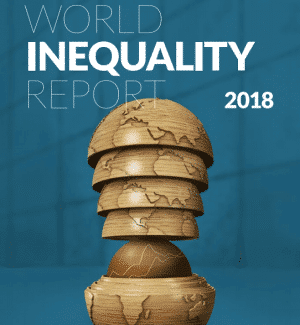
Policy highlights:
- The lack of transparency about the dynamics driving inequality and the extent to which it exists limits the possibility for peaceful, democratic discussions about what constitutes an acceptable level of inequality and how to reach it. The World Inequality Report 2018 brings the latest and most complete data to the public arena, with the aim of informing debates about global, regional and national inequality. At the global level he top 1% richest individuals in the world captured twice as much growth as the bottom 50%. In addition, globally income growth has been slow or non-existent for the group between the bottom 50% and top 1%.
- Challenges specific to Sub-Saharan Africa include: 1) low growth, which has increased global inequality (incomes in Sub-Saharan Africa are only 0.3 times of the world average incomes today), 2) stable, but extreme levels of, inequality (in 2016, only 12% of national income was received by the bottom 50% in the region), and 3) a lack of data, which is common for low- and middle income countries in general (e.g. the income-tax data for Ghana, Kenya, Tanzania, Nigeria, and Uganda covers less than 1% of the estimated adult population of these countries). Furthermore, the available data suggests that inequality is greater than previously assumed.
- National policies and institutions play a clear role in shaping inequality. It is recommended that governments should:
- adopt progressive tax policies (those earning higher incomes should pay more taxes, with a specific focus on inheritances, which will add to public income and reduce the motivation of elites to capture higher shares of e.g. incomes);
- cooperate in creating a global financial register that records the ownership of financial assets (as the Paradise Papers revealed, tax evasion is one of the main challenges of tax systems, with tax havens holding around 10% of global GDP);
- provide more equal access to (higher) education and to well-paying jobs;
- invest in the future (especially in education, health, and environmental protection) to address current inequalities in income and wealth levels, and to prevent further increases in these inequalities.









